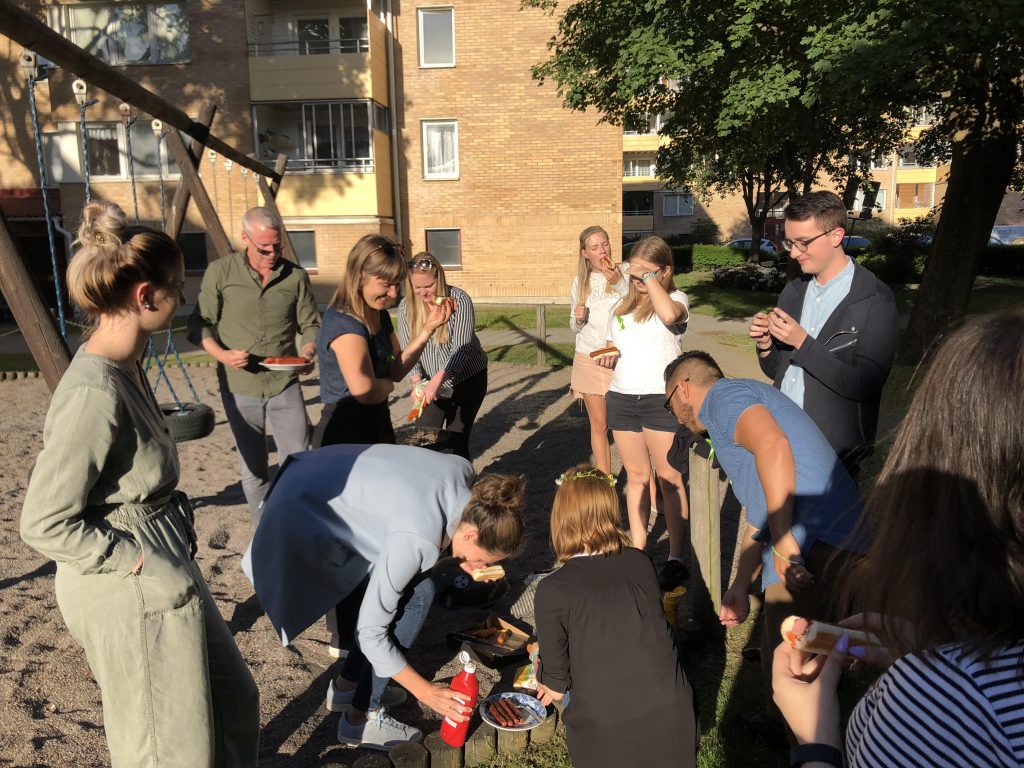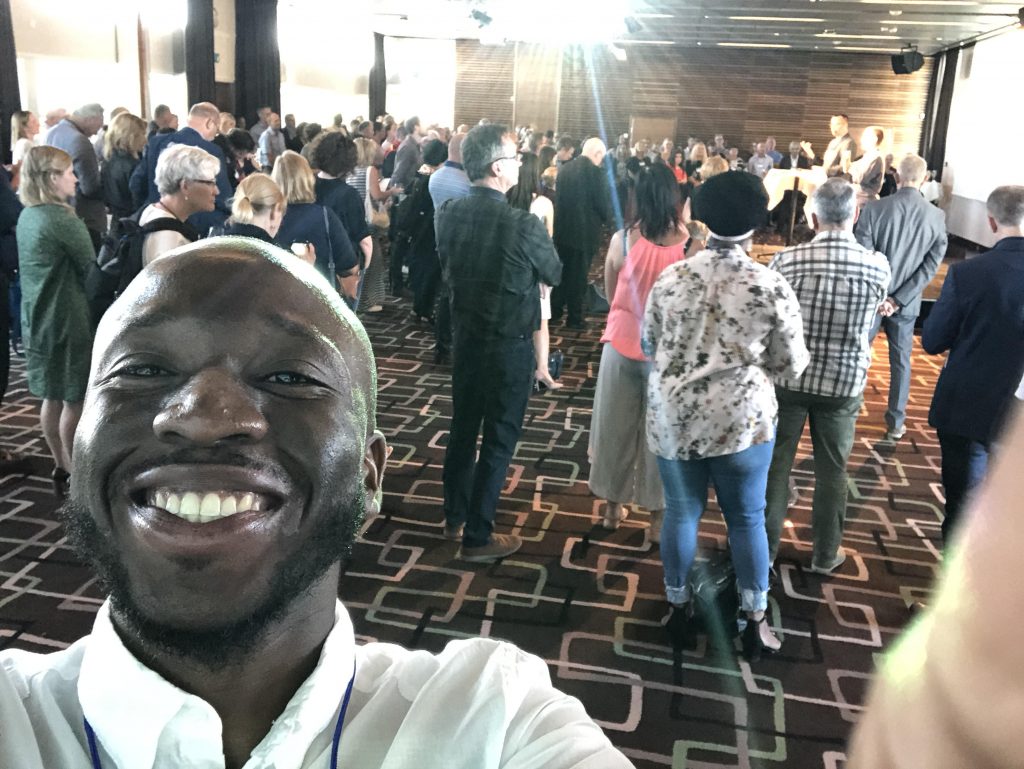To mark its 15th year, the International Initiative for Mental Health Leadership (IIMHL) hosted its annual mental health leadership conference in the beautiful city of Stockholm, Sweden. This year, the theme Building Bridges Beyond Borders was reflected through the range of leadership exchange matches designed to foster an atmosphere for mental health leaders to share innovations, network, and problem solve across agencies and countries.
One particular leadership exchange focused on facilitating young people’s involvement in advocacy, service design and delivery, policy and research. As one of the leaders in youth engagement and young adult mental health in Canada, Stella’s Place, represented by me Funmilade Taiwo, found itself amongst some of the most brilliant young minds from around the world.
Led by Ian Manion (Frayme Canada), Helen Bohan (Mental Health Foundation UK), and Louise Aronsson (Tilia, Sweden) , we discussed the key challenges, opportunities and game changers for youth in Service Delivery and Design, Policy, Advocacy, Research.
What began as an initial introductions in a room with 25 other young adults from Canada, Ireland, England, Norwary, U.S.A, Denmark and Sweden, grew into two days worth of challenging and necessary conversations about youth involvement in youth mental health care.
The bond we formed as a team was amazing. Maybe it was the many ways in which we were simultaneously different, and similar. Maybe it was just the beautiful weather in Stockholm. Regardless, the energy in the room was palpable.
It wasn’t all work. Life’s all about balance right? Our Swedish Hosts – Tilia – thought so as well. We got to see their awesome space, played some fun swedish games, and barbecued some hotdogs!
A trip to Stockholm wouldn’t have been complete without a boat trip to one of the many Archipelagos (groups of islands). We ventured out to Fjaderholmarna (feather island) where we swam in the freezing lake, admired the local birds, and enjoyed a traditional Swedish lunch of smoked fish and potato salad.
This was a nice break from all the conversations, however, our work was not done. On Wednesday evening, we met with 460 mental health leaders from 24 different countries who had been involved in matches just like ours. Our challenge as youth representatives of our various countries was to find ways to echo our youth engagement mantra “Nothing About Us Without Us”.
Like a well trained team of youth engagement spies, we interacted with top mental health leaders in conversations about the importance of having youth at such a conference. We shared our desire to see a less tokenistic approach to having youth at these conferences, and a more inclusive means to having our voices heard.
To us, this meant we’d trade our mental health literacy- knowledge about our mental health, for system literacy- knowledge of how the mental health systems work so that we have a better appreciation of what it takes for the change we want to be put in place.
Here, you can see us hard at work in a ‘World Cafe” style discussion on building a society for mental health and social inclusion of people with disabilities.
In addition to the larger conversations, we had the opportunity to attend workshops led by international mental health leaders. I attended workshops on “Leadership Beyond Borders” and “Collective Impact Framework”, in order to gain a better appreciation of what it takes to drive change in our communities, as well as the tools to adapt these strategies internationally.
A key takeaway, and validation to the work being done at Stella’s Place, was the unanimous support for the co-design model in youth mental health. Some of you might not know this, but here at Stella’s Place, we value youth input in the design and delivery of all our in person and online support programs. Young adults were even involved the design of our furniture here. I mean, if you’re going to do youth engagement, do it right, right? Right!
That said, the IIMHL conference was a stellar opportunity for us. As we continue to include voices locally at Stella’s Place, we hope to continue to learn from and teach others globally the many ways youth can be in charge of their recovery.








